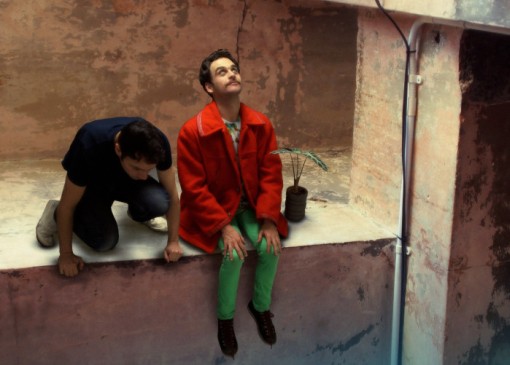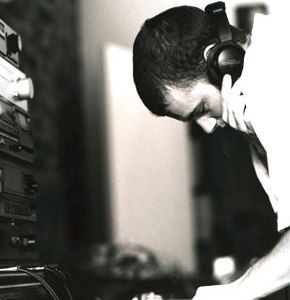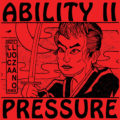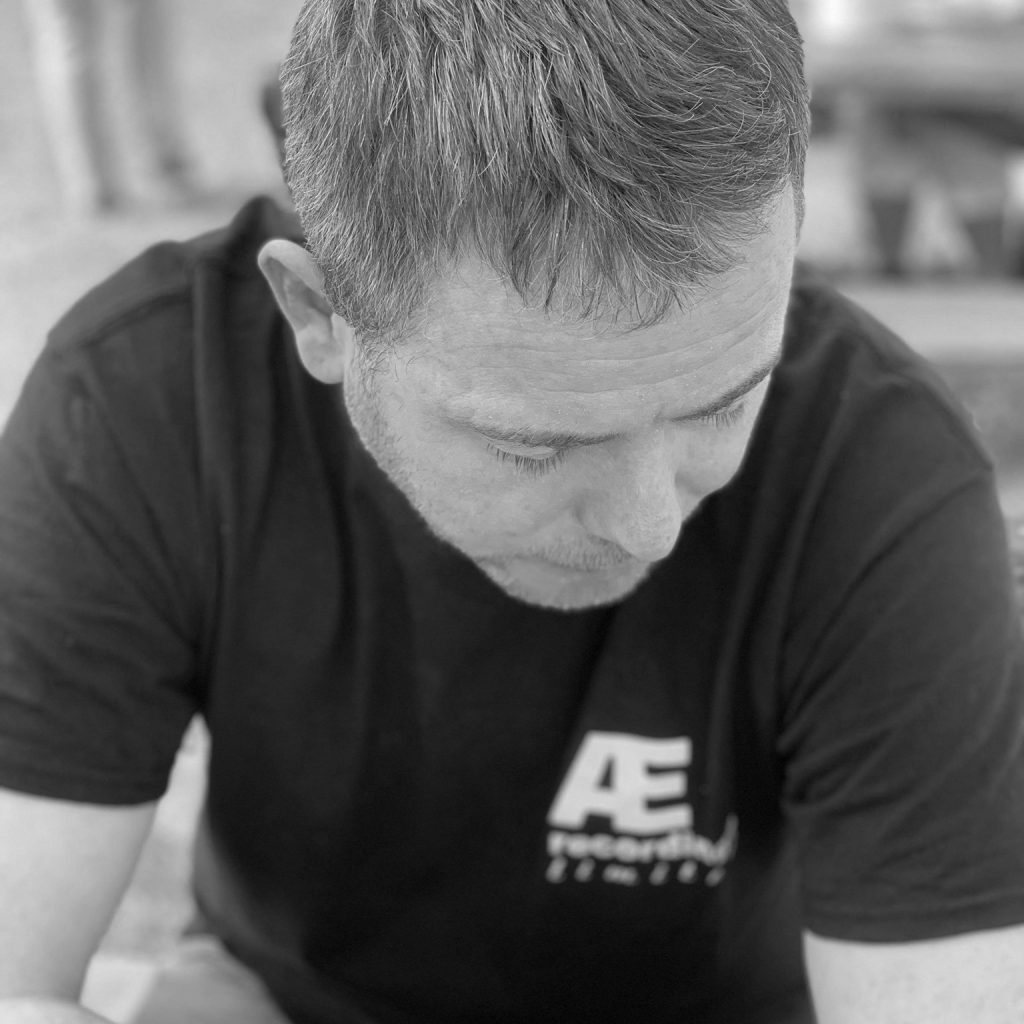
Icelandic Techno producer Ohm aka Bjarnar Jónsson on his love of music and experiences of community
Edging towards veteran status in Electronic music circles these days, Icelandic Techno producer Ohm is definitely more of a legend than a myth.
In every sense a key player and one of the leading figures in contemporary Icelandic Techno – over the last 20+ years, he has played an active role in defining and spreading the much celebrated sound that has captured audiophiles and enthusiasts across the globe with cavernously deep, dubbed out aesthetics – forever etched with glacial undertones and unique resonances.
Inhabiting the slightly less remote climes of Copenhagen these days, Bjarnar Jónsson aka Ohm has never strayed far from his roots, consistently innovating his interpretation of Techno: integrating the essence of soul with his sense of lived experience. A fusion of the modern and classical if you will, his music is widely associated with iconic labels such as Force inc, Thule Records, AE Recordings, Rawax, Taped Artifact, Kontakt alongside his OHM series imprint.
The Copenhagen-based artist was born and raised in Reykjavik, and caught the music bug early on. Back in 1999 and still a teenager, his debut release was a collaboration with Icelandic Techno legend, friend and mentor – Exos. Which found it’s way to German power house Force Inc for release, to much critical acclaim. Since then, Jónsson has continued to be a constant source of high grade sonics that embrace the true spirits of the frozen North.
Having been a regular guest at the legendary Techno institution Culture Box in Copenhagen, he has also played around the world in clubs and festivals over the last 20 Years. With the recent release of his debut LP ‘Northwest Passage’ alongside friend and long time collaborator Octal Industries on Lempuyang. It prompted us to take the time to reach out for chat and dig a little deeper into his story.
What where your experiences of growing up in such a unique and remote place?
Well, I was born and raised in Iceland in the capital Reykjavik. I didn’t have much knowledge about the wider world around me as a kid, I guess my upbringing was pretty standard in that respect.
I was raised by my sister as my mum had a stroke when I was around 8 years old. So, I was adopted by her… she was a lesbian in the 80s. Back then, the world was a bit different. Not as Tolerant as it is today towards people being different. But, she was a tough girl and never let me feel all the shit she got from the local community. Saying that, I’ve always tended to make friends that also were a bit different from the average flock, so that’s kind of how I got into music.
At the time, the only exposure we had to the outside world was through music and movies. Iceland is a pretty isolated country in so many respects, we didn’t have the massive influx of tourism back then in the 80s and early 90s. The city was very different then from how it is now.
What would you say are the most important elements in Icelandic culture that reflect themselves in the music and culture you grew up in?
I would say it’s the feeling of being isolated, rough weather and long winter darkness.
We had music to make it all a bit better. We would meet at someone´s house and listen to records, make tunes and play some records, as there was not much else to do. We learned that we needed something to keep us busy. At least, it’s how we felt in the group I was hanging around with.
Are there any particular myths or legends that reverberate in your creative experience?
Well, Icelandic People are very spiritual. Many people create music and art about elves, old spirits and the power of nature. But to be honest, myself – I’ve never put any thought into that while I’ve been making music. But, the spirituality gets you in the end and forms our collective way of looking at the world through those glasses, sometimes.
Where does the story of Electronic music in Iceland begin?
I am no expert in that respect… I was just a kid listening to songs on the radio, or some pop music tapes on my Walkman. It was around ‘92 I got to learn about the Electronic scene, through radio shows that played mostly UK Jungle, Drum and Bass and Hardcore.
It was only then I started to get into it, getting to know the pioneers. The people behind those shows, the parties and the 2 record stores we had in Reykjavik back then. My classmate was a younger brother to Agzilla, who was doing shows on the radio and then opened up a record store.
They mostly sold white labels so they where the only ones we got back then. He also sold clothes and streetwear, so for me he was the man. At the time, he was involved with Goldie and they were making tunes together alongside Biogen (RIP), Leon Kemp And Thor. Thor (Thule Records) was heavily involved in the scene at the time and was also doing radio shows.
We had another record store in the centre where I started buying records from. It was called Thruman and was owned by the older brother of one of my classmates at school. That store made a huge impact on me and my friends. This is where the first really dedicated Djs worked and they took care of us. Back then, we had a few clubs and they played at them. When I was around 18, I finally got a chance to get booked alongside them and started playing.
Which particular influential artists or bands should we be aware of?
Thor – Exos – Ozy – Ruxpin – Biogen – Bjork – GusGus – Tommi White – Vector and others alike.
The whole Thule Crew was a big inspiration for me, they got me started making music and Exos played a big part in that.
How did you get to hear/discover new music from across the seas, were there any particular radio shows you could dial into?
Like I was saying before, we had college radio shows. They played all the new music from abroad and would guide you where to find an illegal rave or parties. B Hlidin was a fav back then.
Later we had a show called Partyzone that is actually still running. They did lists and got the Djs to come over to do a sets, and host some parties too.
Which records and artists would you say were really important at that time?
The whole Thule Crew and their sublabels, Steve o Sullivan and Mosaic, Force Inc, Basic Channel, Chain Reaction, Svek… all the amazing house music labels from the States and Europe. There are too many to mention and I don’t want to leave anyone out 🙂 But yeah, these records were definitely a big at the time:
Basic Channel – Quadrant Dub II
Rhythm & Sound – King In My Empire
Model 500 – Starlight (Moritz Mix aka Maurizio remix)
Maurizio – M4
How would you describe the role of bands like Gusgus and Sigor Ros?
When Gus Gus started they were a group of many people, artists and performers. They did videos that got on MTV and just sounded amazing. They definitely put Iceland on the map as a group of artists working together, as a whole and they created something special. From clubby tunes to deeper Electronic music, people loved them abroad so they made a huge impact. That helped us later definitely, they also worked out of Thule records studios back then sometimes.
Sigur Ros are a lovely bunch of very talented musicians. I went to school with a couple of them. They brought something else to the table… a sound no one had heard before. Dramatic sounds, touching, some times hard to listen too. People loved it and still do. They really opened up doors for other Icelandic musicians.
When and where did you meet Arnvidur (Exos) and Jonas (Octal Industries)?
I meet Arnvidur through a friend of mine when I was aound 17. We were all Djing, huge music lovers and me and Addi really connected. Started hanging out a lot and putting on events in clubs in Reykjavik.
I met Jonas (Octal industries) at Thule Records studios. He was 2 years younger than me and everyone told me he was some kind of a prodigy, music just flowed out of him. We didn’t hang out much back then but later became good friends.
How did it all lead you to experimenting with Synthesizers, Samplers and Drum machines?
It all started when I meet Addi (Exos), he’d released a few Dub Techno and Techno EPs, along with some albums. He encouraged me to have a go and make a few tunes with him. So, I bought a synth, sampler, mixer and other things and I really loved it. My first releases were with him, so I owe him a lot for getting me there for sure.
What sort of style and sounds did you first try to make?
I was playing Techno back then, it was all at 140 bpm, so I just tried that sound out really. Proper Techno as it was back then, no bullshit, just grooves! And I also dabbled in the deep and dubby side of things too.
Towards the end of 90s, it feels like the community you were part of developed it’s own distinctive sound. Why do you think it evolved the way it did?
We all really liked the deepness of Dub Techno and the grooviness of Tribal Techno, but we put an Icelandic touch to it. We just twisted the sound and made it our own somehow: taking simple loops, editing them and adding loads of FX to play with the sounds. It just came naturally to the artists to try to their own version of the music we were all listening too really.
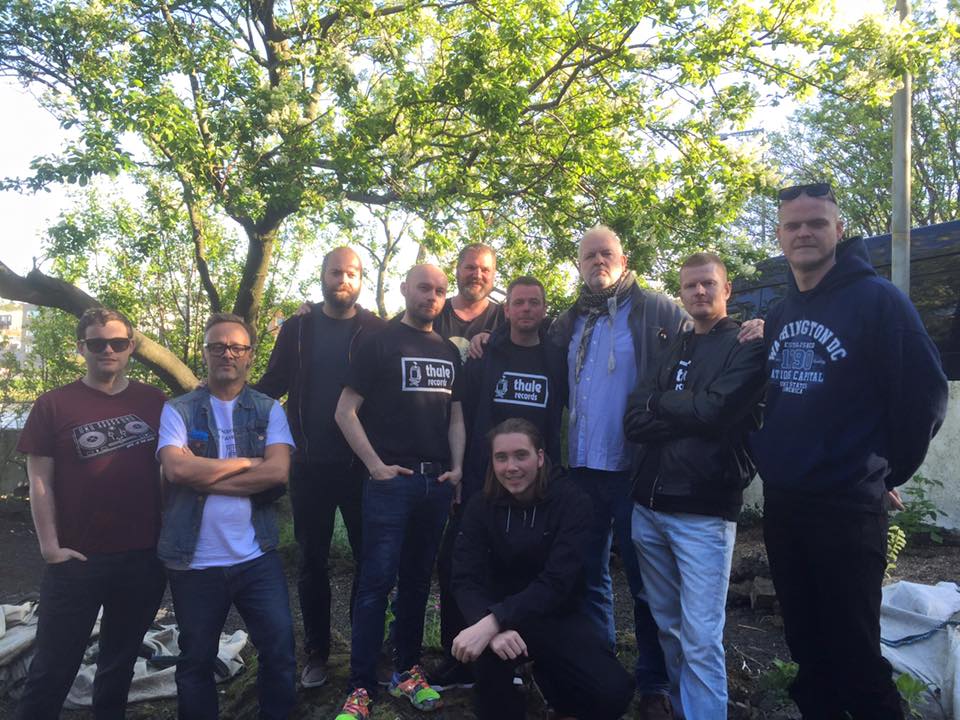
Which Thule/AE records would you say were the ones that had the most impact and helped the sound become so prevalent?
For me all the Thule catalogue was the real catalyst, along with AE (Thule’s sublabel). The imprints gave us the freedom to bring something else to the table. But its hard to pin point which Thule record made the label blow up, I think all the releases together helped the it become what it is today: like Basic Channel and Maurizio, on ice.
I would also say these cuts are certainly worth checking out:
Thor – T1
EXOS – Galaga
Biogen – Psychic Function
Biogen – Autofloat
Ozy – Sagrada Familia
Gus Gus – Purple
How did you get to work with Force Inc and what opportunities did it open up to you?
They listened to the music I made with Exos and liked it. And that’s how my first EP came about.
After that, it became easier for me to work with Thor and I became one of the Thule artists.
At what point did you decide to leave Iceland and make Denmark your home?
Well, that happened/came about when I had been partying way to much in Reykjavik. My life was stuck in a bad loop around 2002. I decided to move as I had some friends in Copenhagen and took a chance to make the move. It afforded me a fresh start and to make a new life for myself, and I found my forever home here. I love it, and the people! Its very easy to fall in love with Copenhagen.
How has living and working there changed things for you?
For starters, I changed how I was living my life. I got into training to become a painter and decorator. Later, I started my own company which gave me the chance to buy my own apartment. Denmark really gave me the life I thought I would never have when i was living in Reykjavik.
You’re involved with Culture Box – how did that come about?
I used to go to their events all the time when the club opened up, though I never got asked to play. Then one day, I sent in a DJ mix to get slot at a competition with other DJs. Luckily for me, I got in the top 3 and was invited for showdown of sorts. Me and the other 2 winners got asked to play a club night. After that, they kept calling and asking me to warm up or to play the last set after a headliner. And after a few years, they asked me to host some events which I still get to do.
It feels like you’ve been a lot more prolific in your studio output the last 6 to 7 years, has there been a particular catalyst for this?
I’ve always been active in making music. But since 2015, when I started to make music with Octal Industries, I just got into really feeling it again and have been on a roll, making more and more. I’ve really been in the Techno, Dub and Deep zone – music for clubs. Luckily for me, some labels have liked what I’ve produced, which has really given me the drive to keep going.
When did you start working with Robert Drewek at Rawax?
I was buying a lot of his represses from legendary artists, so I thought of getting in touch with him.
He had already had done some work with Thule so he knew me. I just sent him some tracks for a release and he liked what I sent him. Rawax has always believed in me and my sound. Robert has since got me some really nice bookings in Berlin. So later, I asked him to take care of my vinyl label – Ohm series. It’s an ongoing project and I’m happy I got in touch and been able to work with DBH Music.
You recently made your first album with Octal Industries, why did the time feel right to make an LP now?
To be totally honest, I was never thinking of an album with the 2 of us. But a year ago, I went to London to meet up with some friends – and we met up with Alastair from Lempuyang. He had just released an EP with me and Jonas (Octal Industries). So he asked me if I thought it was a good idea to make an album. We talked it over and thought we should give it a try. And this is how the album came to life, just meeting friends and having a talk over few beers in a London bar. The timing felt good as I had been making loads of music with Jonas anyway, so we just went for it.
What projects do you have on the slate next?
Right now, I have a few Tracks coming out on some compilations, an EP with Kvadrant and a few remixes also coming out next year. I’m also doing a clear up in my studio and hoping to buy some new gear and plugins soon, to start working on some new records for the next year. So all in all… 2024 is going to be a busy year, there are few things to look forward too.

